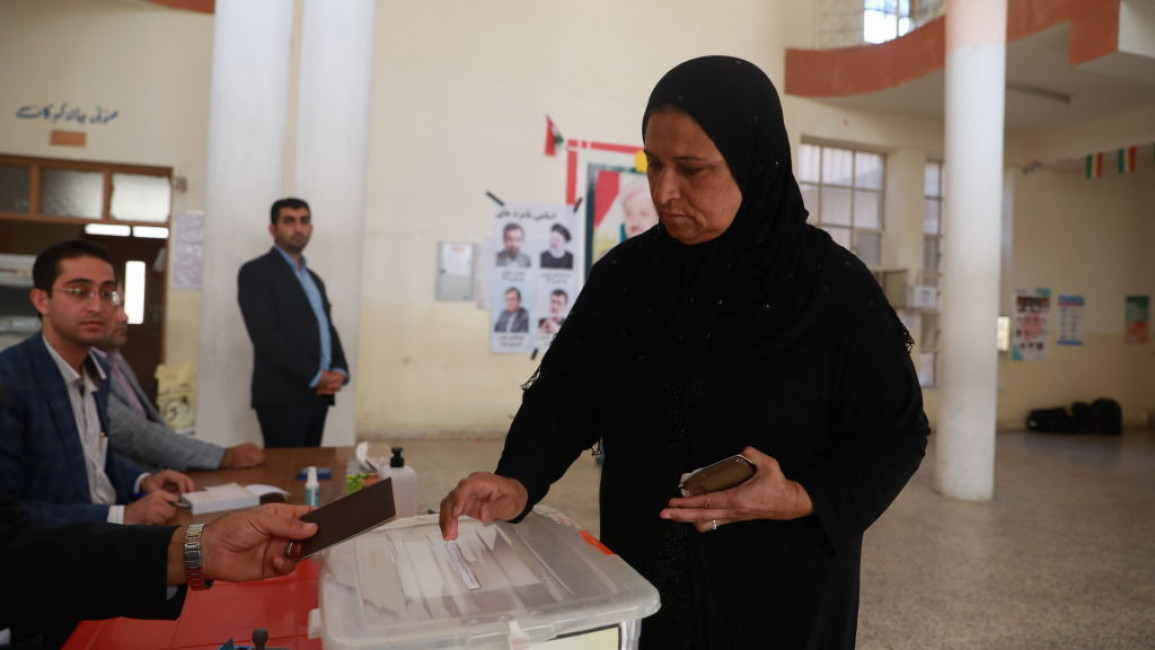Iraq is 'fraud-proofing' its upcoming elections, says official
Preparations for Iraq's upcoming parliamentary elections include fraud-proof voter biometric identification cards and German-printed ballot papers, the chair of the country's electoral commission said on Sunday.
The biometric cards require three sets of fingerprints, Electoral Commission chair Jalil Adnan told state television, six weeks before the elections are due to take place.
Adnan said that 17 million of the biometric cards, which voters will need to vote, have been printed, but millions are still without the ID.
The electoral commission has put the number of voters registered for the 10 October elections at over 24 million, almost all of Iraq's adult population.
Voters without a biometric ID card will be able to use a temporary card, Adnan said, although these have proven more vulnerable to fraud.
Ballot papers are being printed in Germany and have fraud-proofing features akin to those found in banknotes, he added.
Electoral officials are trying to avoid a repeat of the events of the 2018 parliamentary election, which faced widespread accusations of fraud and a low turnout.
Miqdad Al-Sharifi, the head of the electoral commission in 2018, was arrested by an anti-corruption force at Baghdad International Airport on Monday while trying to flee the country, local media reported.
All ballot papers for the election are expected to arrive in Iraq by mid-September, UN mission in Iraq chief Jeanine Hennis-Plasschaert told the UN Security Council on Wednesday.
Candidate lists have been finalised, a ballot lottery has been conducted for all 83 constituencies, and an independent audit firm is reviewing polling and results management systems, Plasschaert said.
Early elections were among demands made by Iraq's popular protest movement, which began in October 2019.
Iraqi Prime Minister Mustafa Al-Kadhimi announced last year that the elections would take place in June 2021, a year earlier than originally scheduled.
Parliament voted to push the elections back four months to allow more time for preparations.
Iraqis living abroad, numbering over one million, will not be able to vote.
Women candidate numbers for this year's election are at half the level of the 2018 elections.
Boycotts by parties and voters are casting doubt on whether the elections will take place as hoped, though Iraqi cleric Muqtada Al-Sadr has reneged on his boycott decision and will run in the elections.


![President Pezeshkian has denounced Israel's attacks on Lebanon [Getty]](/sites/default/files/styles/image_684x385/public/2173482924.jpeg?h=a5f2f23a&itok=q3evVtko)



 Follow the Middle East's top stories in English at The New Arab on Google News
Follow the Middle East's top stories in English at The New Arab on Google News


